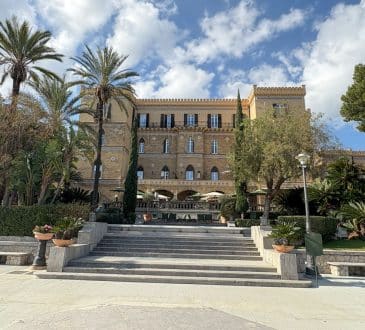The Swiss Way Is The Future Of Business

It looks like the business world is in a relational crisis, in spite of the endless efforts in people-centered management, covered in a multitude of models for continuous improvement. There is an increasing number of employees in organizations who cannot find meaning in their jobs anymore. In local or international companies, the gap between the image of the caring employer that companies try to convey and what employees live in reality, seems to be getting bigger and bigger.
Today, more than ever, people’s needs must be taken into consideration for an organization to succeed in its journey to excellence; anything else leads to internal, individual rebellion. It is not only the needs of the task but surely those of human relations that are fundamental for improving motivation at work and achieving performance to new heights with less stress and less burn-outs. This is addressed by emergence. Our future lies in emergence: the genesis of high-performing human relations arising from the dynamics of a collaborative platform where a team acts as one entity, as a single body, and the leader implements co-creation. The design of changing sustainably, the Swiss way describes how this is done.
The works of Swiss democracy is based on its values of trust and tolerance, respect and humbleness. Switzerland is small, is a prospering country, and is recognized for its social advancements, individual freedom and well-proven collaborative ways of governing. They are the results of its history, where changing sustainably was enabled by the emergence of its people over centuries in autonomous groups which were determined to build and manage flexible networks of alliances.
The top executive power of the Swiss Confederation, the Federal Council, is a team of seven councillors and they are all equally responsible for the management of the council’s operations, strategy and decisions. They lead the country together. Because there is no single authority in charge, they can address conflicts between peers, and establish their balance between autonomy and cooperation for their solutions to emerge in consensus. Emerging with one’s peers puts the people and not a leader at the center for building a future where the whole is not only more than the sum of its parts but also different. The organization then benefits from each and every-one to innovate and sustainably install competitive solutions in totally new ways.
Changing sustainably is deeply embedded in Switzerland’s socio-economic tissue. I have seen, in my career at Nestlé, that what evolved through Switzerland’s history and which has led to prosperity, is also successfully introduced in a business organization. Emergence of high performing human relations are facilitated by three ritualized dialogues which we refer to as contracts in the Emerging Change Model (M. Laugeri, 2015). The three contracts (vision, mission and cooperation contracts) are natural dialogues responding to the needs of our human nature, stemming from the origins of human cooperation. Launching the three contracts of Emerging Change has tremendous advantages for a business:
- People prioritize activities for reaching the objectives together over wasting hours in meetings and discussions
- Companies stay effective, by ensuring coherence between the needs of the people and the objectives of the organization
- Every team becomes an entity, a single body with new ways of working and one voice to the outside.
Big change programmes are out of date. Restructuring is not on the agenda anymore. Obviously organizational objectives evolve but leaders and teams continue developing through the rituals of constructive dialoguing. Leaders collaborate for partnerships externally in vision contracts and internally in mission contracts. Internal needs are addressed through cooperation contracts and teams emerge. They interact for their external needs in mission contracts either with a leader or directly with the stakeholders. Changing is therefore continuously addressed in the contracts resulting in sustainable coherence of the human needs of the people with where the organization wants to go. The organization is changing sustainably.
Switzerland has been recognized as the 10th best country in the world for its citizens to live, 4th place in countries where people are expected to live the longest, 19th best country in the world to invest in eCommerce and digital sector, and 52nd among the world’s best countries to invest in or do business for 2020.
Written by Curt Blattner. Have you read?
# Ranking of the world’s best business schools for 2020.
# Ranking of the world’s best medical schools for 2020.
# Ranking of the world’s best fashion schools for 2020.
# Ranking of the world’s best hospitality and hotel management schools for 2020.
Bring the best of the CEOWORLD magazine's global journalism to audiences in the United States and around the world. - Add CEOWORLD magazine to your Google News feed.
Follow CEOWORLD magazine headlines on: Google News, LinkedIn, Twitter, and Facebook.
Copyright 2025 The CEOWORLD magazine. All rights reserved. This material (and any extract from it) must not be copied, redistributed or placed on any website, without CEOWORLD magazine' prior written consent. For media queries, please contact: info@ceoworld.biz








